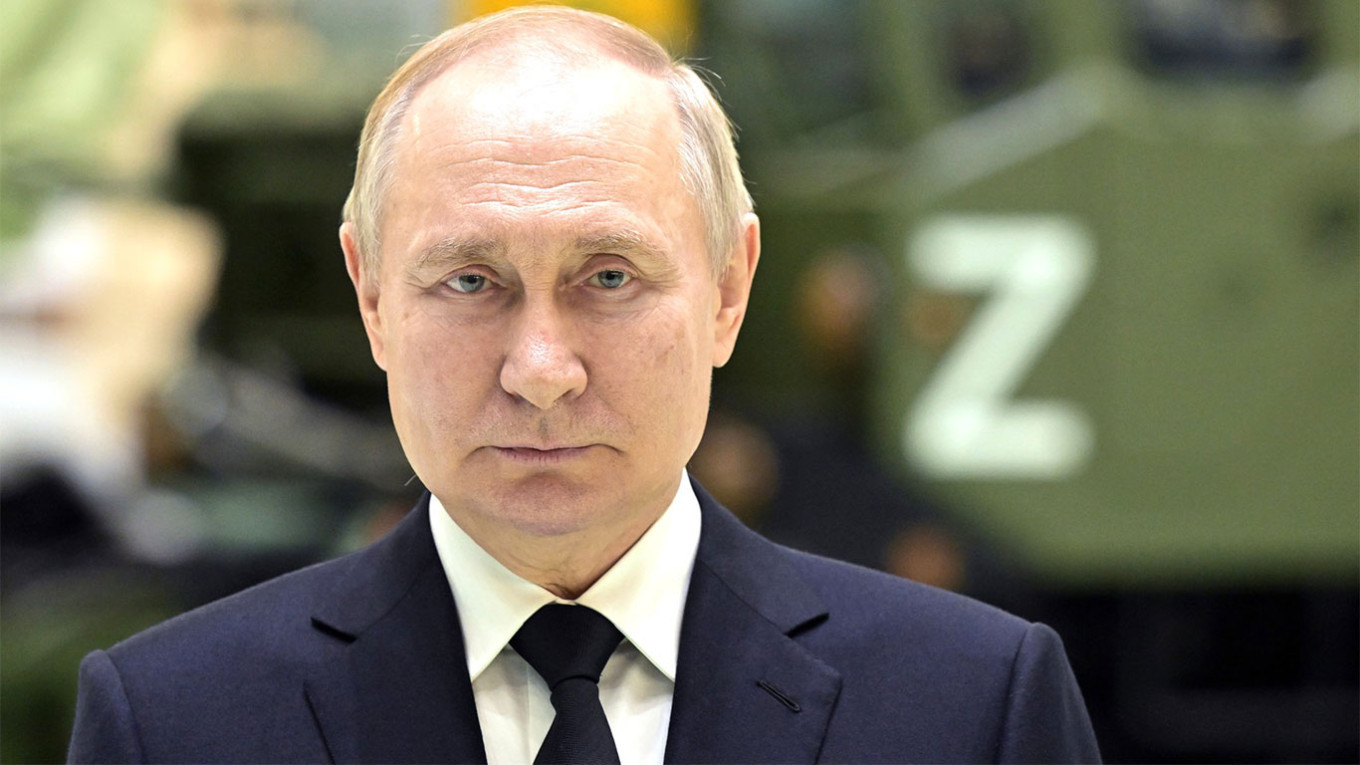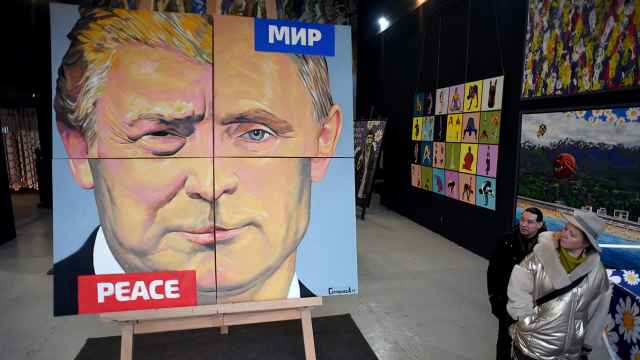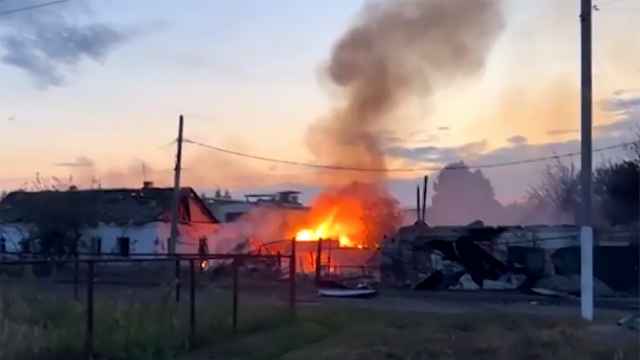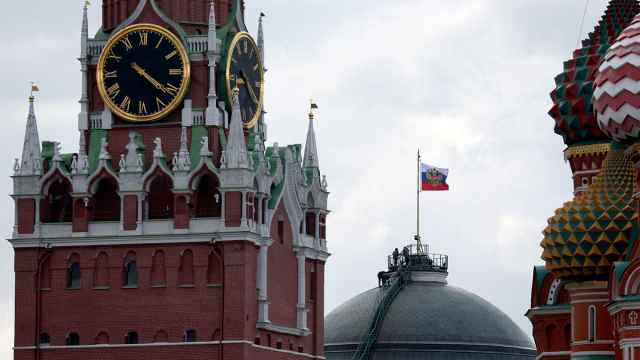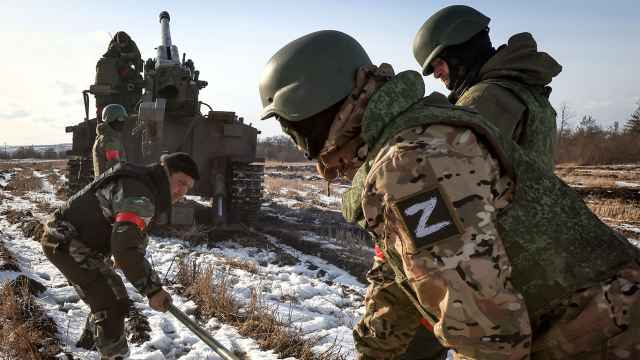When President Vladimir Putin traveled to the Kursk region this month for the first time since Russia expelled Ukrainian forces, his helicopter reportedly came under fire from Ukrainian drones.
And that’s exactly how the Kremlin designed it.
As ordinary Russians continue to bear the domestic brunt of Putin’s war, the Kremlin and the security services staged this PR stunt to convince the public that Putin, too, is making sacrifices for the country, four current and former Russian officials told The Moscow Times.
All of these sources spoke on condition of anonymity to discuss sensitive details related to Putin’s security.
With Ukrainian drone strikes, unprecedented flight cancellations at Russian airports and mobile internet outages becoming more frequent since May 9’s Victory Day celebrations, a display of Putin’s readiness to “personally risk his life” while performing his official duties could temper public dissatisfaction.
“Russians, dear ones, look. President Putin himself is suffering, tormented and even risking his own life. Your problems are trifles. You must grit your teeth and endure,” one Russian official said, describing the intended messaging behind the performance.
Putin was indeed in the Kursk region, where, according to the Kremlin, he traveled by helicopter.
While the region is still regularly targeted by Ukrainian attacks, officials told The Moscow Times that Putin’s safety was ensured at the highest level.
“No one would ever allow such criminal negligence. Not even in a nightmare,” said one government official familiar with the president’s security.
“In reality, it’s not that Putin wants to take risks. The stuff we loudly shout on TV is just for show. On the contrary, more and more measures are being taken to ensure the boss’s safety,” said another official who has worked in both the government and in the Kremlin.
Several Russian officials who attended events involving Putin this year described his security as “off the charts,” with stringent controls governing everything from travel routes to the health of the people accompanying him.
“If I, in 2025, had to take a PCR test not just for Covid, but also for acute respiratory infections and the flu, then what are we even talking about?” recalled one participant.
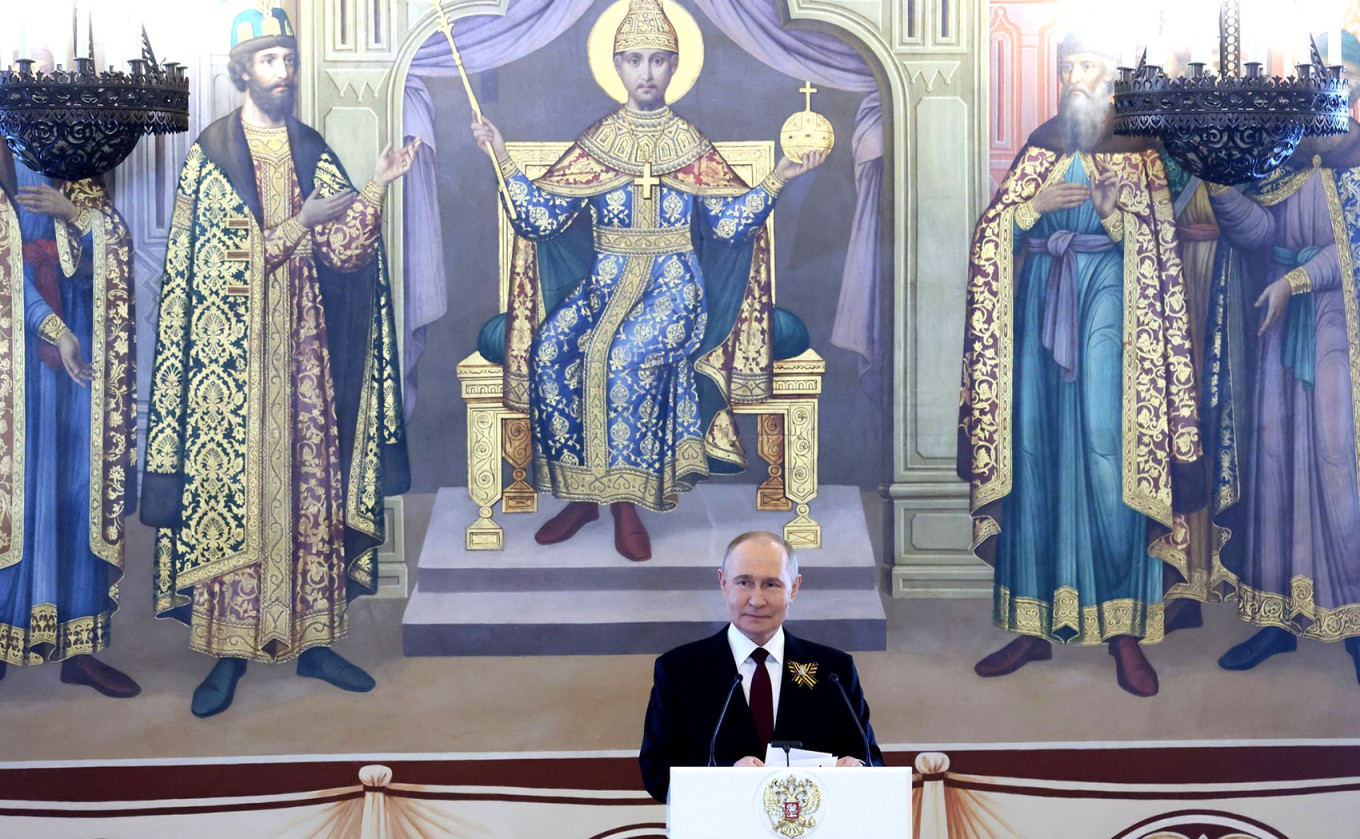
The Defense Ministry used state media to circulate the sensational statement that the presidential helicopter was supposedly “at the epicenter of repelling a massive attack by enemy drones.”
Putin’s trip, however, was carried out under strict secrecy and was only publicized after he returned to Moscow.
Kommersant reporter Andrei Kolesnikov, a longtime member of the Kremlin press pool, also mentioned the alleged attack on Putin’s helicopter in his dispatch from the trip.
But as The Moscow Times has learned, Kolesnikov was not in Kursk. His article was based on secondhand accounts and made no clear disclosure of his absence. He merely noted having seen “Ukrainian military drones in video footage.”
The Kremlin press pool was not invited on this trip with Putin, nor was the Kremlin’s usual team of professional videographers. According to two sources with knowledge of the visit, filming was handled by other individuals, including at least one security officer.
The difference was noticeable in the official video released by the Kremlin, which lacked the high-quality sound and visuals typical of footage of events involving the president.
“Everything is different here,” a cameraperson at a Russian state television channel told The Moscow Times as they analyzed the footage, speaking on condition of anonymity.
“The camera jerks and shakes — not just at the under-construction Kursk-2 power plant, but also during the meetings with the acting regional governor and with volunteers,” the cameraperson said. “The sound is recorded using the camera’s external microphone, which means it’s not clean enough and there’s often background noise.”
The president’s real security detail is far more elaborate than the public is allowed to see. Each trip involves hundreds of officers from various agencies, including the Presidential Security Service (SBP), the FSB, the National Guard and the Interior Ministry.
Backup motorcades, parallel routes, specialized equipment and decoy aircraft are all deployed to conceal the president’s movements.
Putin travels so covertly that even intelligence officials are often unaware of his exact whereabouts, said Vitaly Brizhaty, a former officer with the Federal Guard Service (FSO) who left Russia after the invasion of Ukraine.
“He doesn’t even trust his own people [the security services]. He only trusts his inner circle,” Brizhaty said.
Putin’s trips are planned months in advance, with security personnel inspecting every possible location and route in detail, The Moscow Times understands. Multiple contingencies are always prepared.
And Putin never flies alone, especially not near combat zones. Even on “civil” trips unrelated to the war, the presidential plane is typically accompanied by military fighter jets.
“If all this really happened, then the president wasn’t just in danger from enemy drones. There was a real danger that his helicopter could have accidentally been shot down by Russian air defenses,” said one Russian official.
Military expert Ivan Stupak, a former officer of the Ukrainian Security Service, Kyiv’s successor to the Soviet KGB, said the alleged incident would have been an egregious failure by the SBP.
“Every employee of the Presidential Security Service and the FSO basically should have been fired,” he told The Moscow Times.
Instead, Stupak sees a coordinated media performance that benefits multiple institutions at once. Putin emerges as a fearless, almost heroic leader, while the security services are hailed for operating in extremely dangerous conditions.
“[SBP top officers] are building their careers by formally inflating the risks to the protected person,” Andrei Soldatov, an independent investigative journalist and expert on the Russian secret services, told The Moscow Times. “And they’re selling it beautifully.”
A Message from The Moscow Times:
Dear readers,
We are facing unprecedented challenges. Russia's Prosecutor General's Office has designated The Moscow Times as an "undesirable" organization, criminalizing our work and putting our staff at risk of prosecution. This follows our earlier unjust labeling as a "foreign agent."
These actions are direct attempts to silence independent journalism in Russia. The authorities claim our work "discredits the decisions of the Russian leadership." We see things differently: we strive to provide accurate, unbiased reporting on Russia.
We, the journalists of The Moscow Times, refuse to be silenced. But to continue our work, we need your help.
Your support, no matter how small, makes a world of difference. If you can, please support us monthly starting from just $2. It's quick to set up, and every contribution makes a significant impact.
By supporting The Moscow Times, you're defending open, independent journalism in the face of repression. Thank you for standing with us.
Remind me later.



